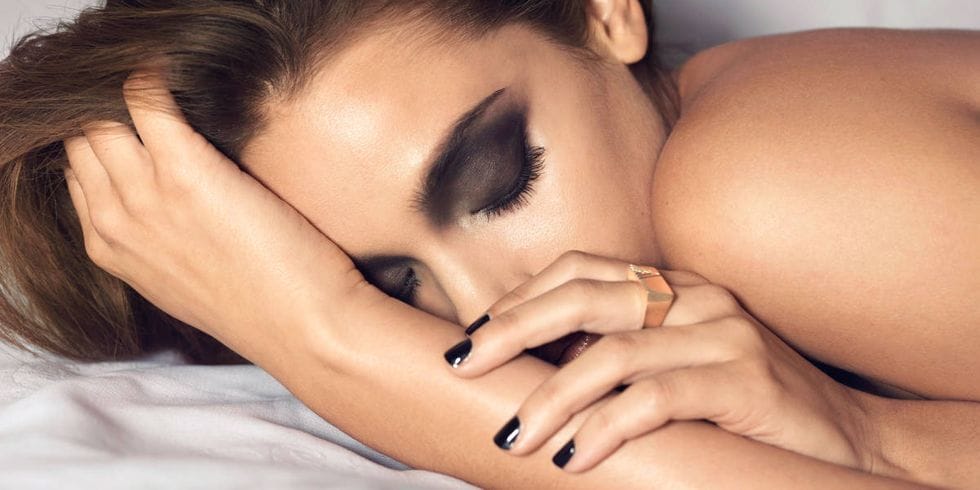
Westin Hotels & Resorts Celebrates World Sleep Day With World Sleep Society Partnership and BAZAAR couldn’t be any more thrilled. BAZAAR is sharing some best-kept secrets on how to get better beauty sleep – all in spirit of World Sleep Day.
We’ve all heard it before: If you’re having a hard time sleeping, you need to adopt a perfectly monastic lifestyle, free of any and all indulgences. No caffeine. No alcohol. No television before bed, and a strict bedtime, as if you were a 10-year-old. Oh, and would you mind mastering meditation while you’re at it? You might try this for a few nights, maybe a week. But then the demands of real life in the real world quickly shatter any illusions of aspiring to such austere asceticism. Not to mention that no amount of chamomile tea can even touch your coffee jones. And so you resign yourself to frequent nights of tossing and turning. It’s a shame when you consider the importance and benefits of good sleep. It allows us to function, to feel and look better, to enjoy sex more, and even to manage our weight. Good news, though: Top sleep specialists are now taking a more realistic approach to helping women get some quality shut-eye.
Have your vices but enjoy them wisely
“There is nothing wrong with good coffee and good wine,” says Rubin Naiman, a sleep specialist at the University of Arizona’s Center for Integrative Medicine and coauthor, with Andrew Weil, of Healthy Sleep. The key with both alcohol and java, he says, is moderation—and timing.
Where coffee is concerned, Naiman recommends limiting intake to one or two cups in the morning, having it with food and, if possible, enjoying it in the sunlight. “Morning light is nature’s cup of coffee,” he says. “It increases the production of serotonin. If you combine morning sun with a cup of coffee, you won’t need as much caffeine.”
You can get away with a little more caffeine into the early afternoon, but Michael Breus, a clinical psychologist who specializes in sleep disorders andis theauthor of Beauty Sleep: Look Younger, Lose Weight, and Feel Great Through Better Sleep, recommends cutting out caffeine after 2:00 P.M. “Caffeine stays in your system between eight and 10 hours,” he says.
Perhaps surprisingly, Naiman points out that espresso drinks contain much less caffeine than regular coffee—about 80 milligrams as opposed to 140 per serving. If you’re one of those brave souls prepared to get off the bean entirely and switch to green tea, you’re looking at only about 25 milligrams of caffeine per cup. “Green tea also contains L-theanine,” Naiman says, “which is a calming substance that modulates the effects of the caffeine.”
You know those Cassandras who give you the evil eye when you’re ordering decaf after dinner, warning, “Did you know decaf isn’t entirely caffeine free?” Tell them it has about 5 milligrams, so you’ll stick with your order, thank you.
It’s a similar story with alcohol. “Less is better, earlier is better, and with food is essential,” says Naiman. “If you drink late in the evening, it will help you fall asleep but then wake you up a few hours later when it becomes a stimulant.” Breus agrees, adding, “For each drink you have”—whether it’s wine or the hard stuff—”put an hour between it and sleep. It takes your body one hour per drink to metabolize the alcohol.”
Breus also says, “Darker wines and liquors seem to have more of an effect than lighter ones, although we don’t yet know why.” That might help explain why many notice they have a harder time sleeping after drinking red wine than after white. “Red wines contain more substances that people are sometimes allergic to, such as tannins, prostaglandins, and histamines,” Grandner says. “Even without an allergy, these substances might disrupt sleep.” If you smoke, have your last cigarette early because nicotine is a stimulant.
Go easy on the fatty foods. Grandner coauthored a study that found that “long term, women—especially older women—who eat more fat- and calorie-dense foods sleep less over time and report feeling sleepy during the day.”
Shift Gears
While a regular bedtime is recommended by most sleep professionals—”The regularity can be a very powerful behavioral sleep aid,” notes Grandner—it’s not easy to maintain such rigid routines. No matter when you hit the sack, give yourself an hour to wind down.
Try a bubble bath. “It needs to be a bubble bath,” explains Breus, “because the bubbles provide insulation that keeps the water hotter. It doesn’t just relax your muscles. It raises your core temperature. Then when you get out, your temperature drops, which helps you produce melatonin—which helps you sleep.” And sprinkle in some lavender oil, which, he adds, “studies show helps relaxation.”
Lower the temperature in the house. “Our bodies are designed to do what the earth does,” says Naiman, who prefers his patients keep the thermostat no higher than 68. “When the sun goes down, the temperature drops steadily, and so does our body temperature.”
Gentle yoga and breathing exercises before bed are great. But light reading or a little television won’t kill you, especially if you avoid anything too action filled or upsetting. “I actually prescribe Seinfeld reruns for my patients,” Naiman says. “Laughing can be calming and help relax muscles.”
That said, if you’re going to watch television in the evening, Naiman recommends getting blue-blocker glasses. (Check out lowbluelights.com.) “Television and computer screens emit a lot of blue light,” he explains. “That’s the same wavelength that makes the sky blue. It suppresses melatonin.” That suppression makes it harder to sleep.
Lights Out
The darker the bedroom, the better for maintaining crucial melatonin levels. “Get blackout shades,” Breus says, “and an eye mask for travel.”
The light from your alarm clock needs to go too. “Face it away from you,” Grandner suggests. “The first thing you do when you can’t sleep is look at the clock, and the second thing you do is math. How many people do you know who do math to relax?”
Breathe
If you just can’t seem to calm your mind, try calming your breath. Naiman recommends a 4-7-8 breath: “Place the tip of your tongue against the ridge behind your upper front teeth. Breathe in through your nose to the count of four. Hold your breath to the count of seven. Then, to the count of eight, breathe out through your mouth. Repeat three times.”
Don’t rely on meds
Of course, there will be nights when you want to just pop a pill. Grandner says that pharmaceuticals such as Ambien and Lunesta can be useful, but only short term. Breus compares regular use of sleeping pills to taking diet pills: not a long-term solution.
If nothing has worked, get out of bed and do something relaxing. “That is the core of behavioral treatment for insomnia,” Grandner says, “and it has been shown to be better in the long term than any sleep medication.”
For personalized advice, “see a certified behavioral sleep specialist,” says Naiman, “not a general physician, because they’ll just give you meds.”



